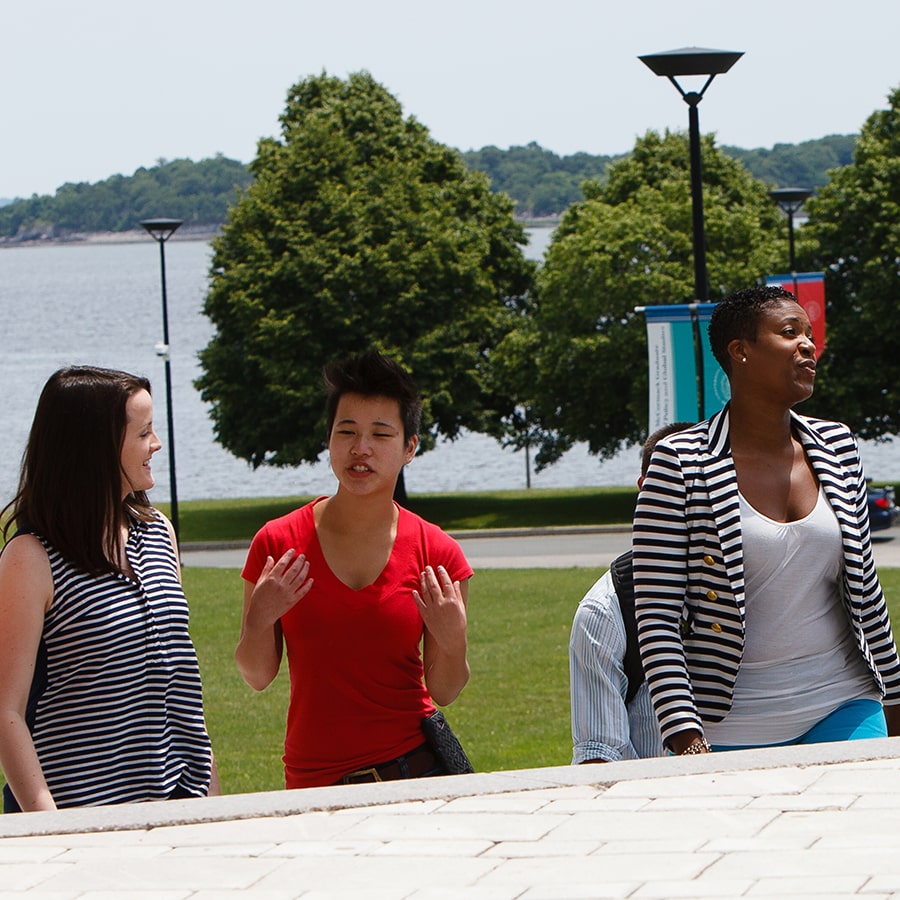Plan Your Education
How to Apply
Applicants must meet general graduate admission requirements in addition to the following program-specific requirements:
- A minimum, cumulative GPA of 3.0 on a 4.0 scale (or international equivalent) in all undergraduate work, though an exception may be made based on the holistic strength of the application
- A bachelor’s degree from a regionally accredited U.S. institution of recognized standing or an international equivalent at the time of enrollment
- Official transcripts for all institutions where you have earned more than 6 credits: Applicants who completed the majority of their undergraduate coursework outside of the United States are typically required to submit official TOEFL, IELTS, PTE, or Duolingo English proficiency test score
- Resume or curriculum vitae
- Statement of Purpose
- Two (2) letters of recommendation
Current UMass Boston undergraduates who wish to apply for the accelerated master's program (AMP) should use the AMP application. Learn more about the AMP program.
Deadlines & Cost
Deadlines: April 1 (priority deadline) or June 15 (final deadline) for fall, November 1 for spring
Application Fee: The nonrefundable application fee is $75. UMass Boston alumni and current students that plan to complete degree requirements prior to graduate enrollment can submit the application without paying the application fee.
Estimate Your Program Cost: Get a feel for your expected program costs using the Graduate Program Cost Calculator.
Program Cost Information: For more detailed information on costs, please visit the Bursar's website or send an email to Bursar@umb.edu. Please refer to Graduate Student Financial Aid for more information on financial aid.
Curriculum
Core Required Courses (12 Credits)
- GISD 601 - Current and Historical Perspectives on Global Inclusion and Social Development 3 Credit(s)
- GISD 605 - International Responses to Social Inclusion 3 Credit(s)
- GISD 606 - Research and Evaluation in Diverse Settings: Methods and Implications 3 Credit(s)
- GISD 801 - Innovations Seminar 3 Credit(s)
OR - GISD 802 - Social Innovations in Domestic Settings Seminar: 3 Credit(s)
Core Electives (9 Credits)
Complete three from below.
- GISD 608 - Ethics and Professionalism in Global Inclusion and Social Development 3 Credit(s)
- GISD 609 - Justice: A Global Transdisciplinary Framework for Culture and Innovation 3 Credit(s)
- GISD 610 - Strategies for Systemic Change 3 Credit(s)
- GISD 611 - Managing Change: Supporting Communities and Embracing Cultures 3 Credit(s)
- GISD 615 - State, Sovereignty and Governance for Inclusion and Social Development 3 Credit(s)
- GISD 616 - Population Needs and Global Practice 3 Credit(s)
Concentration Courses (15 Credits)
Complete five courses from one of the concentrations below.
- Disability Studies Concentration
- Gerontology Concentration
- Human Rights Concentration
- Nonprofit Management Concentration
- Transnational, Cultural, and Community Studies Concentration
- Individualized Plan of Study Concentration
For more information on curriculum, including course descriptions and degree requirements, visit the Academic Catalog.
Learning Outcomes
In this program, students will:
- Develop a deep understanding of social inequalities, power dynamics, and systems of oppression, enabling you to critically analyze and challenge structural barriers that hinder social inclusion and development
- Acquire advanced knowledge in the principles and practices of social development, intercultural communication, community engagement, and program evaluation, equipping you with the tools to design, implement, and assess inclusive social interventions
- Cultivate intercultural competence, ethical awareness, and collaboration skills, empowering you to work effectively with diverse populations, engage in cross-cultural dialogue, and promote sustainable and equitable social change
Graduation Criteria
Complete 36 credits from twelve courses including four required core courses, three core electives, and five concentration courses.
Concentration: Students must choose a concentration from disability studies; gerontology; human rights; non-profit management; transnational, cultural, and community studies; or individual plan of study.
Capstone: Completion of a master’s project consisting of a 7,000 to 8,000 word writing project (research paper, policy analysis project, program development project, grant application, or self-directed paper) and a public oral or poster presentation of the writing project.
Minimum grade: No course with a grade below B may be applied toward the core courses for the program.
GPA: A minimum GPA of 3.0 is required from all courses applied toward the program.
Residency: No more than six credits of graduate coursework from another institution may be applied toward the program. Transfer courses must have a grade of B or higher and be approved by the graduate program director.
Statute of limitations: Five years.
Contact
Graduate Program Director Valerie Karr
valerie.karr [at] umb.edu
(617) 287-4336

School for Global Inclusion & Social Development
Learn more about the faculty, research, and programs that make up our School for Global Inclusion & Social Development.
Explore School for Global Inclusion & Social Development
College of Education & Human Development
Learn more about the faculty, research, and programs that make up our College of Education & Human Development.
Explore College of Education & Human Development